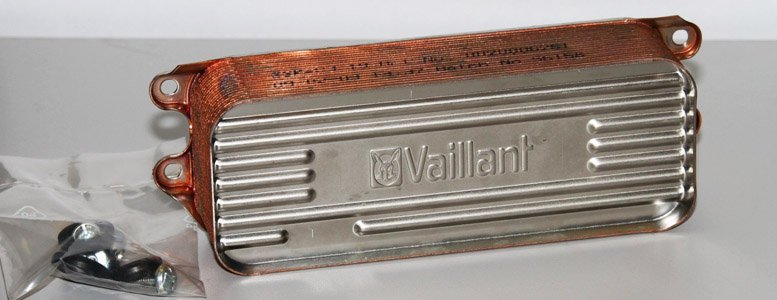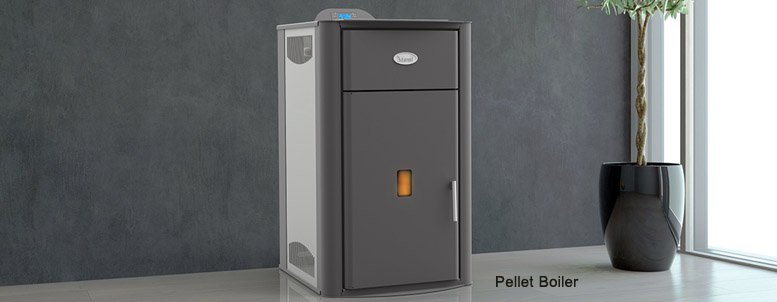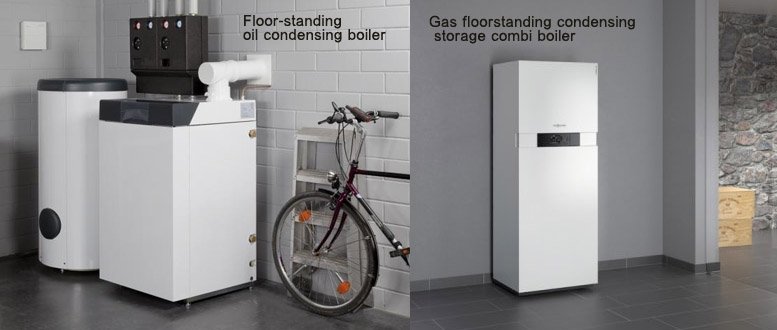This is the most common type of boilers. Power ranges from 4 kW to several hundred kW. Floor boilers and be powered by all sorts of fuel.
Gas boilers are the most popular ones, and they are used to heat up residences.
There are various models with heat exchangers made of different materials and therefore having different durability. There are steel, stainless steel, cast iron, and copper heat exchangers.
Cast iron is the most reliable and durable material. It burns rarely, and is almost impervious to corrosion. Heat exchangers that are made of cast iron last more than 50 years. However, a strong impact may lead to cracks, because cast iron is somewhat fragile. Also, a heat exchanger may crack if cold water gets into the hot water. Hard water may leave behind limescale, which can cause some parts of the boiler to overheat and develop micro fissures. A cast iron boiler will keep your house warm for years.

The use of copper in heat exchangers increases their longevity. However, if the heat generator has more than 40 kW, you’d better choose a cast-iron boiler. As you can see, you can only choose this kind of appliance only if your house is not big.
Steel heat exchangers are less likely to deform and are more impact-resistant. They are twice as lightweight as cast-iron ones. However, they are more likely to rust (because of condensate) and burn faster. Their durability depends on the thickness and quality of steel and environment, and ranges from 6 to 15 years. Some models use stainless or alloy steel and technologies, which prevent condensation. These appliances can successfully compete with cast-iron ones, although they are much more expensive. The choice of this advanced kind of boiler will be rewarded with warmth and comfort.

Pros:
- A high quality heat exchanger will guarantee long functioning. The heat exchanger is the element that has to withstand the biggest load when being used.
- Floor gas appliances work for about 50 years.
- Compatible with all types of heating systems – pump- and natural circulation systems.
- Floor gas appliances have no power limits. No matter how big your house is, one such boiler can handle it (surely, if you have chosen the right equipment).
Cons:
- Large dimensions and weight. A gas appliance requires a separate room.
- Gas boilers do not work with coaxial flues.
- The equipment is rather costly.
- Complex installation. To install such a boiler, you need at least four hours. It is absolutely imperative that you test-run your system to ensure that the installation has been carried out in a correct way.
